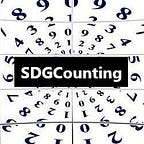Measuring Systems Change
Impactful Strategies from the 2024 Skoll World Forum
Effective measurement of global scale initiatives remains a stumbling block in the development community. At the recent Skoll Foundation World Forum, speakers and participants delved into the complex but crucial task of measuring the impact on systems, primarily focusing on enhancing inclusion and equity within global sustainable development.
Understanding the Complexity of Systems Change
John Kania, Executive Director at Collective Change Lab, opened the session with a discussion on the nature of systems change. Highlighting the complexity, Kania emphasized that systems change involves shifting the conditions that hold a problem in place. This includes policies, practices, relationships, power dynamics, and mental models. His approach underscored the multifaceted nature of systems, consisting of tangible and intangible elements that all play a crucial role in fostering significant societal shifts.
“Systems are made up of people who were once babies…systems change is really about affecting conditions, actually trying to put better conditions in the way of people who are trying to create change or remove barriers.” — John Kania.
Significant Challenges and Innovative Solutions
The session underscored the inherent complexities and varied dimensions of measuring systems change. Participants noted the following challenges and potential solutions:
- Defining Systems and Boundaries: There is a pronounced difficulty in defining what constitutes ‘the system’ and its boundaries due to their interconnected and overlapping nature.
- Timeframes and Sustainability: Systems change is a long-term endeavor, challenging the usual funding cycles and requiring patient capital to see meaningful changes.
- Power Dynamics: Acknowledging and addressing power imbalances in the systems change narrative is crucial to ensuring inclusivity in measurement methodologies.
- Integration of Diverse Perspectives: Including multiple and often marginalized voices in the conversation about what constitutes effective systems change is essential.
Tools and Approaches for Measuring Impact
During the session, two main approaches were presented for evaluating systems change. First, Kania introduced ‘Outcomes Harvesting’, a method focusing on assessing what changes have occurred and how interventions have contributed, thus providing a mix of qualitative and quantitative data.
The second approach, as discussed by Kania, revolves around ‘Storytelling’. This method captures emotions and feelings, essential components of systems that are often overlooked in traditional evaluations.
Insights from On-the-Ground Implementers
Nivi Sharma, CEO at Bridges to Prosperity, shared examples from her experiences in leveraging rural infrastructure to drive systemic change. Sharma stressed the importance of scaling impact through influencing broader systems rather than direct implementation alone. “What would not happen if we were not there?” Sharma asked, highlighting the need for organizations to be catalysts of broad, systemic transformations.
“We can measure the longer-term systems change…it really comes down to constantly asking ourselves if we are moving the needle on this.” — Nivi Sharma.
The Role of Philanthropies and Power Dynamics
Natasha Joshi from Rohini Nilekani Philanthropies extended the discussion into the philanthropic perspective on measuring systems change. She pointed out the limits of traditional measurement tools and advocated for a multi-method approach that captures the qualitative dimension of change, noting that “data is information a computer can understand” which necessitates acknowledging non-quantifiable impacts.
“We need a higher resolution, a better telescope” — Natasha Joshi.
Concluding Thoughts
The session concluded with a strong call to action for organizations to adopt more comprehensive and empathetic approaches to measuring systems change. There was a consensus on the necessity of patient capital, collaborative efforts, and the integration of local community needs and desires into the frameworks used for measurement.
SDGCounting is a program of StartingUpGood and tracks the progress of counting and measuring the success of the SDGs. Follow us on social media:
For the latest on innovative entrepreneurship and social enterprise, check out StartingUpGood on Twitter/X and LinkedIn.
Disclaimer: Generative AI tools such as OpenAI’s GPT and Google’s Gemini were used in the creation of this article to assist with summarization and proof reading.
